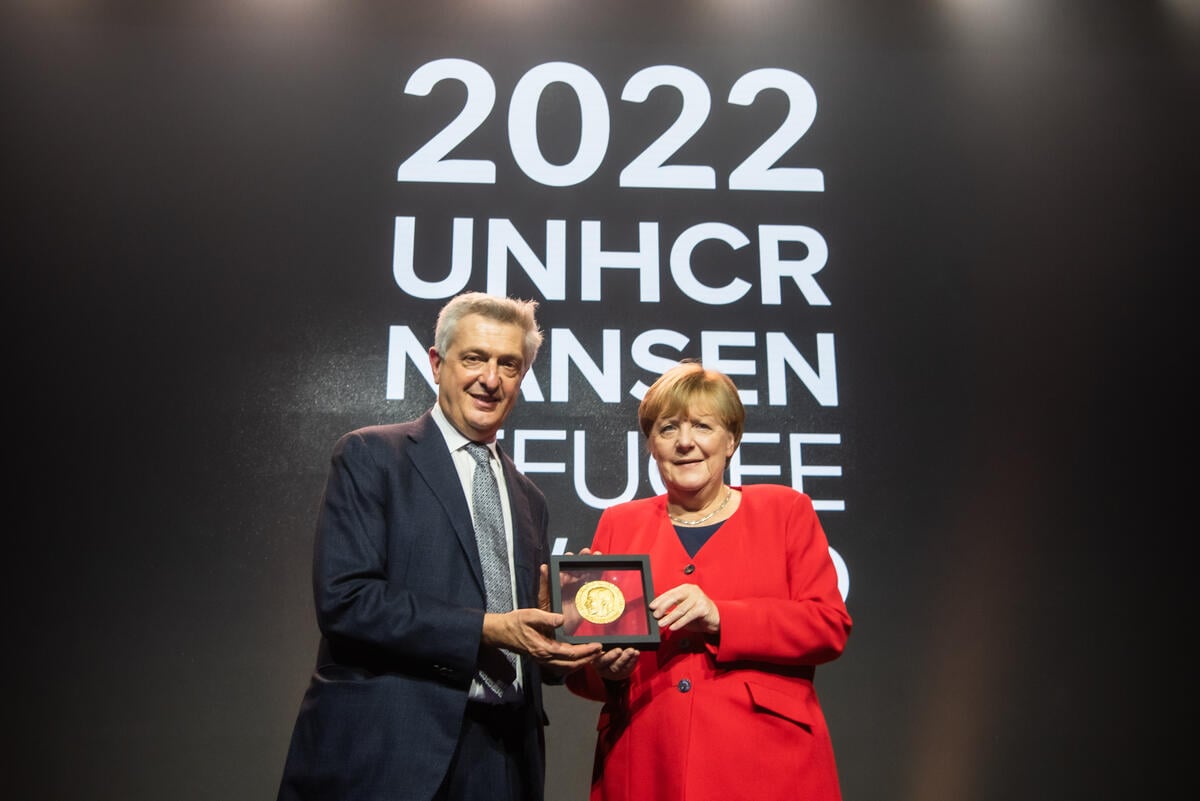UNHCR welcome EU moves towards a common asylum system
UNHCR welcome EU moves towards a common asylum system
On Wednesday 12 June the European Parliament amended EU legislation on asylum after long and complex negotiations. The changes that have been brought are in UNHCR's view a welcome step towards the establishment of a Common European Asylum System.
The ultimate objective of these changes is a uniform asylum system which is valid across the European Union. This would ensure that, regardless of the Member State in which an application for international protection is lodged, the application should receive the same treatment.
Among several new provisions which improve existing frameworks and practice are four elements that we believe are of particular note. The first is strengthened safeguards in asylum decision-making. This includes mandatory training requirements for authorities; a compulsory personal interview in all cases; requirements for a detailed report of the personal interview; and gender-sensitive procedures.
The second is further regulation of the use of detention. Systematic detention of asylum-seekers will no longer be possible. Important new guarantees include the requirement that any detention be necessary and proportionate; that detention is an exceptional measure and can only be justified for a legitimate purpose on defined grounds.
The third is more extensive guarantees for vulnerable people. These include the establishment of identification mechanisms, better representation for unaccompanied children, as well as specific procedural and reception guarantees.
Last, is earlier access to the labour market. In cases where claims for international protection are not decided within six months, asylum-seekers will have access to the labour market not later than nine months following the date when their applications were lodged.
UNHCR believes that the legislation agreed has potential to contribute to more harmonized asylum systems in the European Union. The agreed legislative package should further improve protection standards and practices across the 27 Member States - soon to be 28 - with Croatia's imminent accession.
European Union Member States are now obliged to amend their national laws to reflect these changes. If correctly enacted in national laws and implemented in accordance with international protection principles, these new provisions could help ensure a more timely and accurate recognition of persons in need of international protection. This could also lead to resource savings - a key concern of all States - through more efficient asylum systems operating at a high standard of quality.
During the negotiation process, some compromises were made and some opportunities were missed to fill gaps and to clarify overly broad, complex and problematic provisions. Some new articles that have been introduced do raise difficult questions of interpretation and of principle, for example, border entry procedures as they relate to unaccompanied children.
Such provisions are likely to require further guidance from the European Court of Justice to define their implications and UNHCR is committed to supporting this process. As part of our collaboration with governments and in the exercise of our supervisory function for the 1951 Refugee Convention, we are ready to work with Member States and other stakeholders to assist the legislative and implementation process at national level.
UNHCR Credibility Assessment Report
Separately, a UNHCR report published today and also relating to Europe and asylum focuses on a central part of the examination of an asylum claim: determining whether statements and other evidence provided by an applicant are credible.
UNHCR notes in this report that applications for asylum are often turned down in the European Union due to questioning of the credibility of the evidence presented. With this report, and in light of the steps taken by the European Parliament, UNHCR hopes to contribute to the further harmonization of Member State practices as they relate to the assessment of credibility.
At a time when a common understanding of and approach to the credibility assessment process among EU Member States is still lacking, the report "Beyond Proof - Improving Credibility Assessment in EU Asylum Systems" provides unique insights into state practices based on research in EU Member States, guidance from other states and court rulings.
UNHCR calls for a fair EU asylum system with objective and impartial asylum decisions that take into account the applicant's individual background and circumstances.
The report includes checklists and flowcharts that translate the legal and theoretical concepts into practical tools to assist decision-makers and support a fair assessment of credibility.
For information on this topic, please contact:
- In Tissi: Ruth Schöffl, on mobile +235 68 000 537
- In Geneva: Fatoumata Lejeune-Kaba, on mobile +41 79 249 34 83









